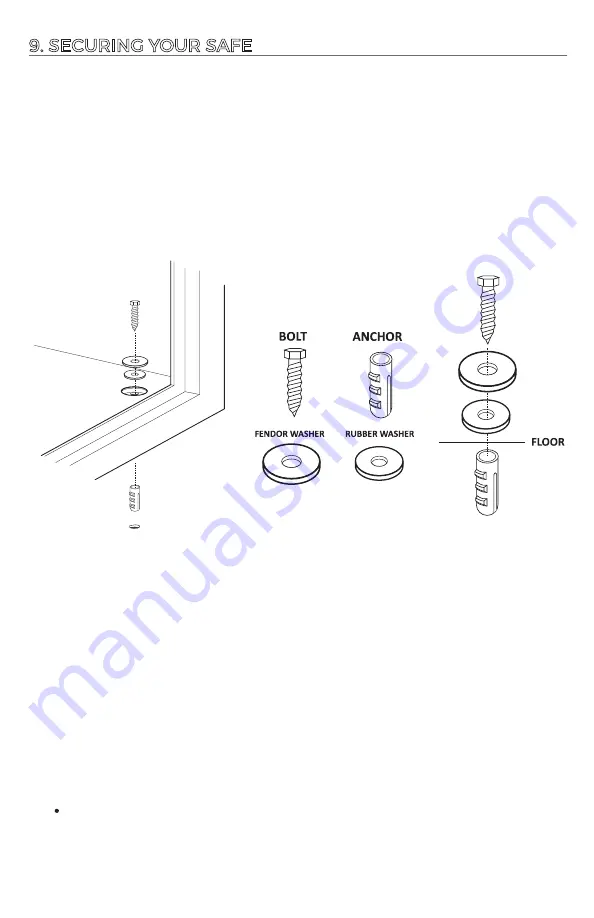
9. SECURING YOUR SAFE
1.
2.
3.
4.
5.
6.
WARNING: YOUR SAFE IS DESIGNED TO SUPPORT ITSELF WHEN THE DOOR IS OPENED.
HOWEVER, CAUTION SHOULD BE USED TO AVOID TIPPING. WHILE SECURING YOUR
SAFE BE SURE TO HAVE A SECOND PERSON HOLD AND STABILIZE THE SAFE TO KEEP IT
FROM TIPPING, CAUSING INJURY, AND/OR DAMAGE TO THE SAFE AND SURROUNDING
STRUCTURES. FAILURE TO DO SO WILL COMPROMISE THE SAFETY, SECURITY, AND
WARRANTY OF THE SAFE.
TOOLS NEEDED TO BOLT SAFE TO A CONCRETE SURFACE
• DRILL / HAMMER DRILL
• DRILL BIT – 1/2” ( for installing into concrete with provided hardware)
• WRENCH / 11/16” (17MM) SOCKET
• HAMMER
Use the hardware provided or consult your hardware retailer for fastening
hardware for your particular mounting surface.
Open your safe door and locate and remove the four black caps on the
safe floor. This will provide access to the factory drilled bolt down holes.
To secure your safe to the floor it will first be necessary to drill pilot holes
in the floor surface.
7.
Replace the four black caps onto the floor of the safe.
8
Drill the appropriate diameter and depth of pilot holes based on the type of
hardware being used and the type of floor surface. For the hardware provided
(concrete floor installation) we recommend using a hammer drill and 1/2”
concrete drill bit to drill holes the four corresponding in the concrete floor.
Insert and drive the plastic anchoring plugs into the pilot holes. You may need
to use a hammer to fully insert the plugs into the pilot holes.
Secure the safe, by threading all 4 anchor bolts through the factory drilled bolt
down holes in the bottom of the safe and ratcheting down tight.
Make sure the metal washer sits on top of the rubber washer. Tighten the
bolt to compress the rubber washer between the safe and metal washer.
Failure to do so will allow water to enter the safe in the event of a flood.


















